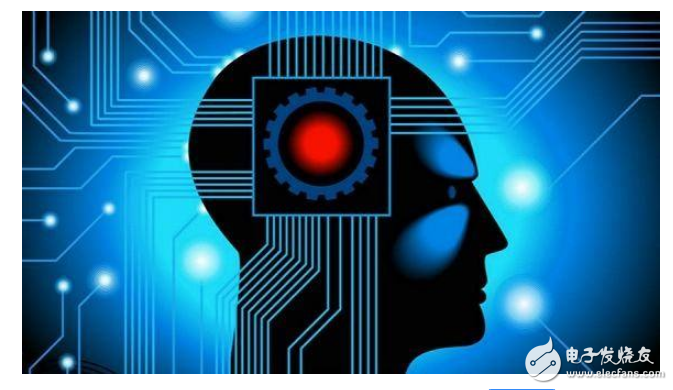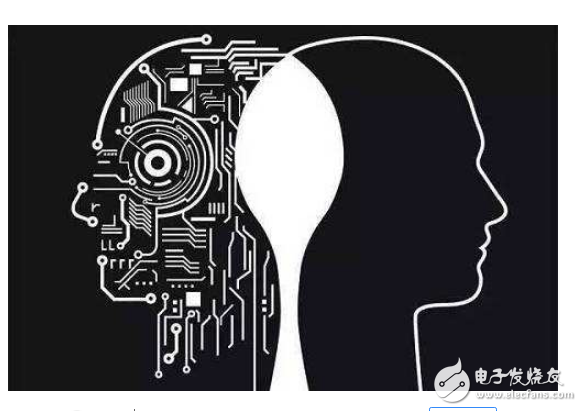The giants have entered the AI ​​battlefield, can it become a new favorite?
**Foreword**
The AI market is heating up rapidly. After Foxconn invested 2.1 billion yuan into artificial intelligence, the "fire" of the AI battlefield has not only continued but also gained more momentum, adding a new layer of intensity to the competition.

**Giants Have Entered the AI Battlefield**
In mid-February, according to a report by *The Information*, Amazon began designing and manufacturing its own AI chips. This move signals the company's ambition to stay competitive in the smart home hardware and consumer AI markets. Currently, Amazon has nearly 450 chip specialists on board.
These custom chips are expected to reduce Alexa’s dependency on remote servers and enhance the performance of Echo devices. In addition, Amazon acquired Blink, a home security camera developer, for $90 million last year. Blink originally developed chips for video compression, which later became the foundation for its cameras. This acquisition significantly boosted Amazon’s chip design capabilities.
According to data from research firm Paysa, Amazon, including Blink, has 449 employees with chip technology expertise in the U.S., and there are 377 open positions related to chip development. The company has been actively recruiting talent from major tech firms like Intel, Microsoft, Apple, and Qualcomm.
Beyond Amazon, other tech giants such as Baidu, Tencent, Apple, Huawei, Qualcomm, and Foxconn have all made significant moves in the AI space. Meanwhile, Chinese AI startups raised more funding than their U.S. counterparts in 2017, accounting for nearly half of the global total. According to CB Insights, global AI startup funding reached $15.2 billion that year, with Chinese companies capturing 48% of the share — a sharp increase from 11.6% in 2016 and surpassing the U.S. for the first time.
Most of the funds raised by Chinese companies are directed toward face recognition technology and AI processors supported by government initiatives. As AI continues to evolve, it is becoming a key driver for business expansion across industries. Companies like Baidu, Apple, Huawei, and Foxconn are all pushing forward, but the shift toward AI is undeniable.
On February 25, Beijing Shenzhou Taiyue (300002.SZ), a leader in IT management, announced that it had increased its investment in AI during 2017. The company was actively transitioning its big data strategy, and the number of AI personnel grew from 150 at the start of the year to 598 by year-end — a 299% increase.
Behind this transformation lies a new wave of talent acquisition. As seen from the rapid growth in staff, Foxconn’s CEO, Guo Taiming, has emphasized the importance of talent in achieving successful transformation, including raising entry standards.
*"Unable to grasp the development opportunity of AI, it is easy to be eliminated,"* said the president of Rongyao Mobile in a signed article in *People’s Daily*. For the mobile phone industry, AI represents a chance for leapfrog development. Those who seize it will lead the way, while those who miss it may fall behind.
Every year, the mobile phone market evolves rapidly. From personnel changes to sales figures, the performance of manufacturers reflects their strategies. Some innovations, like the full-screen trend, took years to gain traction, yet they didn’t create a dramatic shift in the industry landscape.
However, AI is different. It has the potential to reshape the industry. Looking back at the evolution of consumer electronics, true breakthroughs often come from human-computer interaction improvements — such as capacitive touch, Retina screens, large displays, 3D glass, fingerprint recognition, fast charging, and dual cameras.
But it was Siri, the voice assistant on smartphones, that introduced many people to speech recognition. In 2017, Apple expanded human-computer interaction with 3D face recognition, hinting that 3D cameras could become a new feature in 2018. While the timeline may be optimistic, AI is clearly a hot topic in the mobile industry.
At this year’s Mobile World Congress (MWC) in Barcelona, over 2,300 companies are expected to showcase new products. According to overseas media, AI is set to take center stage, potentially replacing mobile phones as the main focus.
Huawei confirmed that its new P20 flagship would feature an AI-powered camera. Earlier reports suggested that Apple will launch three new iPhones this year, two with OLED panels and one with LCD, all equipped with 3D camera functions — a form of AI technology.
Whether AI becomes the new favorite of 2018 remains to be seen. However, it’s clear that many companies are using AI as a marketing tool. While some claims may be exaggerated, AI is likely to become a fundamental part of future devices and services.


Limit Switch,Micro Limit Switch,High Limit Switch,Telemecanique Limit Switch
Shanghai Janetec Electric Co., Ltd. , https://www.janetecelectric.com